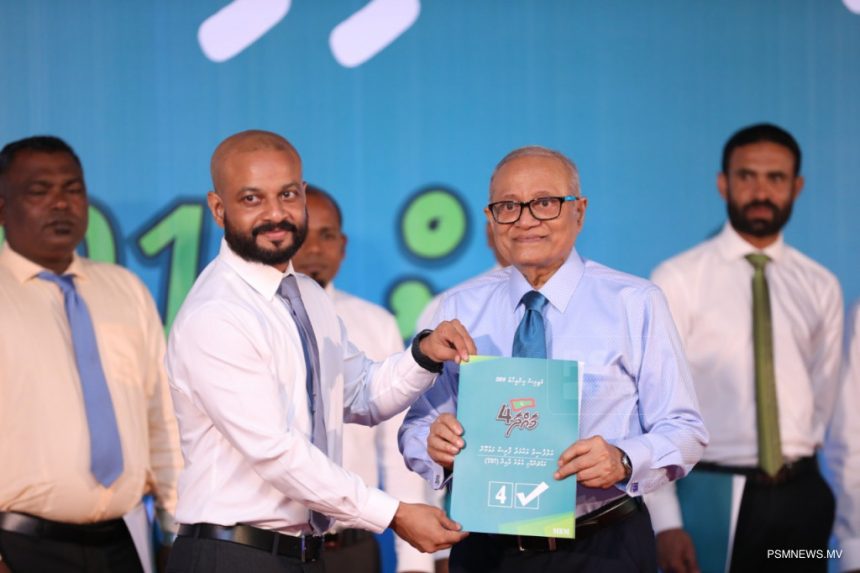The Supreme Court is set to commence hearings regarding the financial liability of former President Maumoon Abdul Gayoom concerning an outstanding debt owed by the now-dissolved Dhivehi Rayyithunge Party (DRP) to the Maldives Transport and Contracting Company (MTCC). The initial hearing is scheduled for 9:00 AM next Wednesday.
Background of the Case
In 2010, the Civil Court ordered DRP to pay MVR 1.1 million to MTCC for services rendered between 2007 and 2009. Following DRP’s failure to settle the debt, MTCC recovered only MVR 2,609.33 from the party’s bank accounts. Consequently, MTCC initiated legal proceedings to hold former President Gayoom, the founder and then-leader of DRP, personally responsible for the remaining debt, citing party regulations that attribute financial liabilities to its highest authority at the time of debt accrual.
Legal Proceedings
The Civil Court initially ruled in favor of Gayoom, stating there was no legal basis to hold him personally accountable for DRP’s debts. MTCC appealed this decision to the High Court, which upheld the lower court’s ruling, leading to the dismissal of the case on procedural grounds, including the lapse of the appeal period.
Undeterred, MTCC escalated the matter to the High Court. In response, Gayoom’s legal team filed an appeal with the Supreme Court in April, seeking to overturn the High Court’s decision to proceed with MTCC’s appeal. The Supreme Court has now agreed to hear the case, with a bench comprising Justices Dr. Azmiralda Zahir, Aisha Shujoon Mohamed, and Dr. Mohamed Ibrahim presiding over the proceedings.
Dissolution of DRP
Once a dominant political force in the Maldives, DRP faced internal conflicts leading to its decline. After Gayoom’s departure and the formation of the Progressive Party of Maldives (PPM), DRP underwent several leadership changes. Ultimately, the Elections Commission dissolved the party in 2023 due to its failure to maintain the minimum required membership of 3,000 members.
Implications
This case underscores the complexities surrounding financial liabilities of dissolved political entities and the extent of personal accountability of their former leaders. The Supreme Court’s decision could set a significant precedent for future cases involving financial obligations of political parties and their leadership.




